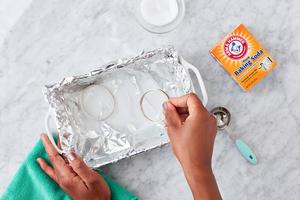
Baseboards, light switches, kitchen counters, and light switches are among the dirtiest parts of your home. You can find eco-friendly disinfectants to make these areas as clean as possible. Dirt can build up in these areas, regardless of whether you use hot water or soap to wash dishes. In these areas, bacteria and germs can thrive. You should clean your sink and kitchen counters regularly to keep your home clean.
Remote controls for cleaning
When we think about the dirtiest places in our home, we often think of the garage, kitchen, and bathroom. It may be surprising to learn that even everyday items can become breeding grounds for viruses and bacteria. Even something seemingly innocent like a remote control could harbor harmful germs or bacteria. By taking these few simple steps, you can protect your remote from becoming a dirty, germ-filled mess.

Cleaning baseboards
You may feel overwhelmed by the amount of dust and dirt that gathers on the baseboards of your home. It's not something you want to do over and over again. These simple cleaning tips will make it easy to tackle the task. Keep reading to find out how to keep your baseboards clean.
Sponge cleaner
According to Dr. Chuck Gerba, a professor of microbiology at the University of Arizona, the average kitchen sponge is one of the dirtiest places in the home. This is because sponges are used to wipe everything, and they are not always cleaned thoroughly. Because sponges retain moisture and bacteria, bacteria will build up. This moisture is ideal for bacteria to thrive.
Cleaning light switches
It's easy to neglect the cleaning of light switches in the dirtiest places of your home, but you should do so for their sake. Grease, dirt and other particles can accumulate on light switches. You'll need to get rid them off before you start cleaning. This will prevent germs, diseases, and other harmful substances from spreading around your house. Use a disinfectant solution to clean your light switches. Make sure they stay germ-free by disinfecting them with an alcohol-based cleaner.
Cleaning doorknobs
It is easy for people to forget about the importance of cleaning the doorknobs. They are often the most neglected areas in your home. Keeping these handles clean can help prevent many common infections, like the common cold, and may even make you feel better when you walk into the room. Mix half a cup white vinegar and a tablespoon salt to clean doorknobs. Let it sit for a few minutes, then rinse it out.

Cleaning shower curtains
New research has shown that shower curtains contain 60 times as many gram-negative rods than toilet seats. These bacteria can not only be dangerous to humans but also resistant to antibiotics. Healthline spoke to experts in cleaning to discover the potential hazards of shower curtains that aren't cleaned often. Here are some ways to keep your shower curtain clean and germ-free.
FAQ
Which is better, a professional or DIY cleaning solution?
It all depends on how big your house is and what type of cleaning you are looking for.
You can use a DIY cleaning product for small houses. A professional cleaning service is recommended for large homes.
What is your best choice for disinfecting your house
Lysol Disinfectant Spray is the best disinfectant because it kills 99.9% allergens on contact. It leaves surfaces clean and fresh-smelling.
How often should I vacuum?
Every week vacuum. Vacuuming removes dirt and keeps your carpet looking new.
Statistics
- You must see the house in question when estimating all private house cleaning jobs, according to Cleaning 4 Profit. (freshbooks.com)
- The best-paid 10 percent make $34,000, while the lowest-paid 10 percent make $26,000. (zippia.com)
- A single-family home should cost $120 to $150 to clean, according to Home Advisor. (freshbooks.com)
- Add 33 percent on top of your cost. (freshbooks.com)
External Links
How To
Tips to organize and keep your home clean
You'll have a much easier time organizing your home if you know how to do it correctly.
First, take inventory of what you own. Make a list of everything you own and include any items you don't use anymore. The next step is to go through all of your belongings and decide which items should remain in your home forever and which items can be sold or donated to charity. Some of your belongings might be sold online. You might even be able to make some money from selling them online.
Next, go through your house and sort out what stays. Put the dishes in the dishwasher first. After that, you can put your clothes into the drawers. Fold laundry and place it into the closet. Clear out the areas you spend the most time in. You may be able move furniture around to make space for storage containers. Perhaps you could designate a space for books, toys, and games.
After you have organized your possessions, it's time to clean your home. Get rid of posters, artwork, and photos. Take out all clutter from tables and counters. Don't keep old newspapers or magazines. Last but not least, clean up after yourself: pick up trash, empty wastebaskets and vacuum floors.
Start small to maintain a clean home. It will be easy to get comfortable with doing small tasks like these. So, when you have extra time, try tackling a more extensive project, such as organizing your garage, basement, attic, or kitchen.